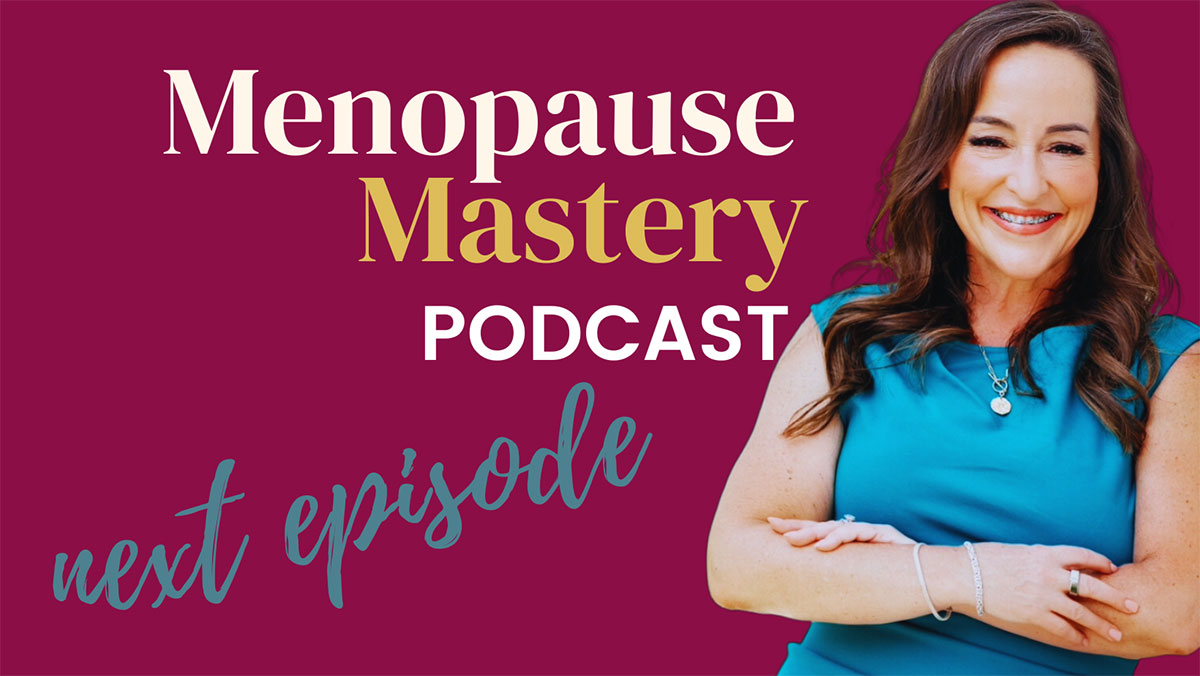
Are You Leptin Resistant?
Are you struggling to lose weight and can’t stop snacking? You may have developed leptin resistance. Today on Menopause Mastery, I am giving you a crash course in leptin resistance and the chain reaction that follows. Leptin is the hormone that signals that you’re full, and once you develop a resistance to it, your brain can no longer receive those signals, which is why you feel insatiable.
Fat cells produce leptin, so if you continuously eat a poor diet and accumulate excess fat, inevitably, your body will generate too much leptin. At that point, the leptin receptors in the hypothalamus can no longer recognize leptin, which leaves you feeling hungry and disrupts your metabolism.
In this episode, you will learn exactly how delicate the symphony of hormones is and why you can’t just focus on fixing a single hormone. Once you’re at the point of leptin resistance, you undoubtedly have dysregulation of insulin, ghrelin, and glucose because everything works together. I teach you how you can take small steps to reset your hormones and reverse leptin resistance with a healthy lifestyle and a better understanding of your body’s delicate balance.
Key Takeaways:
- [2:00] If you’re struggling to lose weight it may be a sign that you are leptin resistant
- [3:40] Common symptoms of leptin resistance
- [7:00] How chronic inflammation damages leptin receptors in your brain
- [7:30] Type 2 diabetes can result from leptin resistance
- [8:20] Sleep and stress are the biggest lifestyle contributors to hormonal dysregulation
- [10:50] Leptin resistance contributes to the inability to feel full after eating
- [12:40] What happens to leptin during menopause and perimenopause
- [14:45] Lifestyle and foods that contribute to leptin resistance
- [16:00] The dangers of haphazard eating and inappropriate fasting
- [17:50] Under-exercising and over-exercising both can contribute to leptin resistance
- [20:00] During menopause ghrelin increases which stimulate the process of gluconeogenesis
- [24:40] Weight loss is impossible if you don’t take into account hormone imbalance
- [25:40]Trickling in your protein can contribute to gluconeogenesis
- [33:00] Stress levels and cortisol are basically the body’s ability to perceive itself in a safe state
- [33:30] Excess alcohol lowers glucose metabolism and increases gluconeogenesis
Memorable Quotes:
“We kind of have to keep that metabolism somewhat stocked because what happens when you get really hungry and you’ve got leptin resistance, you’re more likely to eat something that’s not as good for you, and then you’re more likely to continue to eat past your hunger.” [17:10]
“Carbohydrate content is truly not an essential food. It’s not an essential nutrient. Our body can survive without taking in carbohydrate content because we can produce it through the liver and ghrelin is the hormone that does that.” [21:37]
“Weight loss, particularly are problematic as a picture when you’re ignoring all these hormone levels assuming that it’s something as simple as eat less calories and workout more because we have all of these hormones that are contributing to dysregulation that basically are all, in different ways, acting upon a very ancient requirement for our bodies to be able to hold on to body weight so we don’t die.” [24:55]
Connect with Betty Murray:
Website
Living Well Dallas
Menopause Metabolism Mastery
Socials
Facebook
Instagram
CONTACT US

